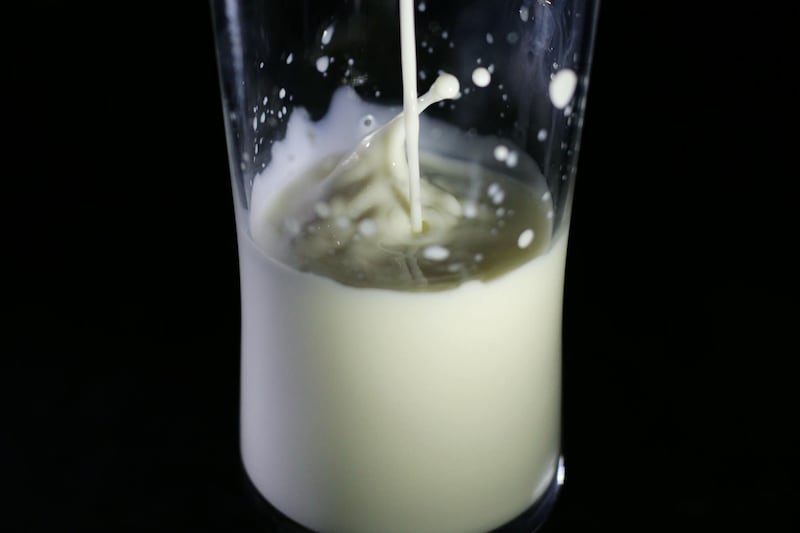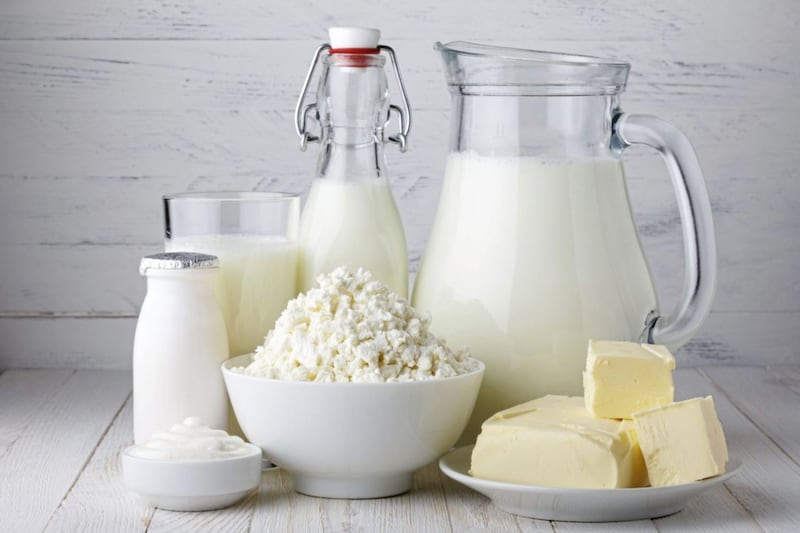FULL-fat milk and cheese aren't the foods you'd normally associate with weight loss – but they might not be as bad for your figure, or health, as you think. For while they do contain saturated fat, dairy experts suggest that fats from milk may not be quite the dietary demons other saturated fats are thought to be.
"The term 'full-fat' sometimes gets confused with 'full of fat', and in fact, dairy isn't full of fat at all," stresses Anne Mullen, head of nutrition at The Dairy Council.
"Whole milk, for example, isn't classified as being a high-fat food. Dairy isn't just fat; it contains a huge range of nutrients. Milk is high in calcium, B vitamins and iodine.
"So if you're cutting out dairy in an effort to reduce calories or fat, you're cutting out a whole range of really important nutrients."
A number of studies have found that consuming dairy, even the full-fat variety, may aid weight loss and reduce the risk of health conditions, including cardiovascular disease and type 2 diabetes.
Research into the effect of eating dairy is ongoing, but two of the notable preliminary findings so far involve the way dairy calcium increases the amount of fat the body excretes, and how unique dairy fatty acids may be associated with reduced disease risk.
The calcium theory suggests that the more dairy calcium you include in your diet, the less fat will be absorbed by the digestive system, meaning that when you eat dairy products, their calories may not all count.
Danish scientist Professor Arne Astrup has found that if a person is fed a high cheese or milk diet, their faeces contain more fat than those of a person eating the same amount of calories whose diet doesn't contain much dairy.
Prof Astrup has said: "Dietary calcium has the potential to increase faecal fat excretion to an extent that could be relevant for prevention of weight gain."
Dr Mullen says the majority of studies show dairy consumption has no association, or a protective association, against body weight and body fatness.
"Consuming dairy hasn't been associated with obesity in the big studies," she stresses.
She says the key question is, if people eat higher-fat dairy products, are the extra calories not as much of a problem because the dairy calcium leads to more fat, and therefore calories, being excreted?
"It's really interesting as a hypothesis, but we've yet to confirm it," she stresses.
While calcium appears to be important in helping the body excrete more fat, another study suggests it's not just calcium, but dairy calcium, that works best alongside a restricted calorie diet.
University of Tennessee research showed obese adults who ate a high-dairy, restricted calorie diet lost significantly more weight and fat than those who ate a low-dairy diet containing the same calories.
Those who ate the dairy-rich diet lost the most with an average of 24 pounds in 24 weeks, compared with 19 pounds in the group who took calcium supplements, and 15 pounds in the low-calcium/low-dairy group. The researchers found eating three to four servings of dairy products a day helped weight loss more than a restricted calorie diet and calcium supplementation alone.
Another theory is that unique saturated fatty acids found in dairy can reduce the risk of certain serious diseases. Research from Cambridge University found that the circulating dairy fat, margaric acid, significantly reduced the risk of cardiovascular disease.
In addition, a Medical Research Council study looked at nine different saturated fatty acids and the risk of developing type 2 diabetes, and found that while some fatty acids did increase diabetes risk, dairy fatty acids decreased the risk.
Lead scientist Dr Nita Forouhi said the study concurred with other research indicating a protective effect against type 2 diabetes from eating yoghurt and other dairy products.
"Our findings provide strong evidence that individual saturated fatty acids are not all the same," she added.
Studies also suggest that people with high dairy intakes are less likely to suffer strokes than those with little dairy in their diets. However, Dr Mullen stresses that not enough research has been done to draw firm conclusions about dairy fatty acid benefits.
"National surveys say we're still eating too much saturated fat, and the official guidance is to choose skimmed or semi-skimmed dairy varieties," she says.
So with the more energy-dense, or high-calorie dairy foods like cheese, it's advised that people stick to recommended portion sizes (around 25g of cheddar, which is the size of a small matchbox, for an adult).
"But we need to be more considered about the foods saturated fat comes from – when it comes to dairy, there's a lot more going on than just saturated fat."
"There's something special about dairy. It contains saturated fat, of course, but it contains other nutrients and some very unique saturated fatty acids, and the whole dairy package appears to have a neutral, or in fact, a protective effect on heart disease, type 2 diabetes and obesity. That's the take-home message."





